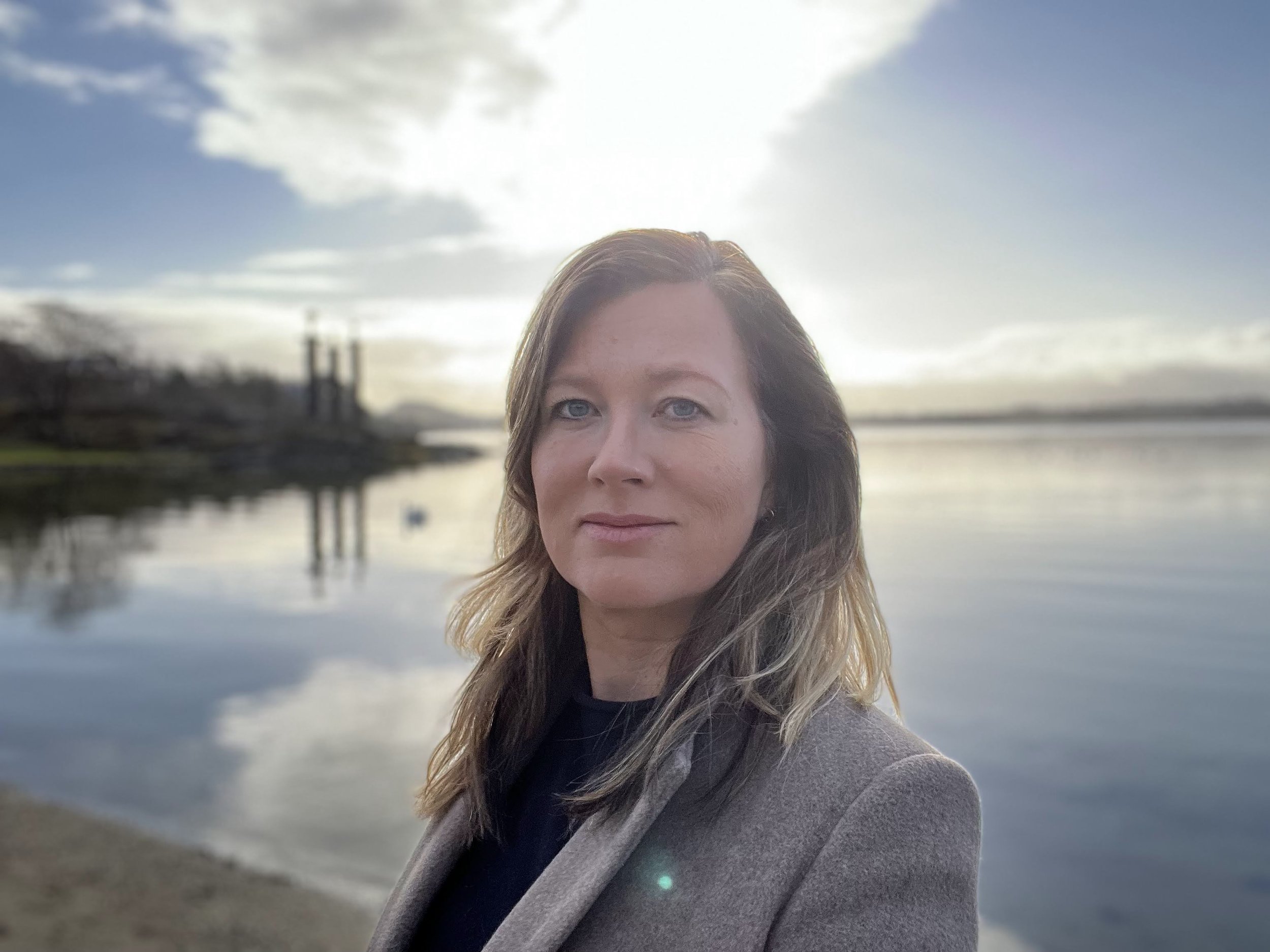What we learned from taking the fight
They told me about a meeting where they had evaluated me – where the conclusion was that I was too weak to take the fight.
This is a long read, but I believe it is an important story to tell. I tell this story for two reasons:
1) we grew as a team and learned important things from this experience and
2) now we have done this, and then you don’t have to
Please remember: This is our story. The view of our counterpart is probably different.
How it all started
In 2019, a fall in the oil price had stopped exploration efforts for most of our existing clients, leaving our company’s economy under significant pressure.
When a new potential client reached out to us, I was warned by three different people in my network not to work with the company. However, I trusted the person reaching out and was eager to create jobs for my team. So, I made the decision to go ahead, knowing (as it turned out!) little about my point of contact’s lack of mandate.
A team of 14 people was assigned to the project. Because of the tight schedule, we worked long hours with our best team effort. We were incredibly proud of meeting project deadlines and at the same time living up to our own high requirements and expectations. In our view, the collaboration was all going very well.
Then suddenly, late on a Friday afternoon, we received an intimidating legal letter with several threats. Because of my counterpart’s legal rights, I won’t mention the details here. But let’s just say that the accusations were many, and that they came as a massive surprise to the entire team.
With this action, our client challenged some of our most cherished values: integrity, transparency, and trust. They questioned the pride we take in our work as scientists.
And they refused to pay the bill.
The initial process
First things first: 14 people had worked hard and deserved to be paid. In our contracts, we have a standard clause stating that our associated specialists and partners cannot be paid before we have received payment from our client. Still, dealing with an extraordinary situation, we decided to use our company’s capital to pay the team. The significant amount of money forced us to put salary increases and other strategic activities on hold.
Since day one of our company’s journey, we have had the pleasure of working closely with lawyer Andreas Erdal and Advokatfirmaet Torstrup. Finding ourselves in an unexpected dispute, we involved him as soon as possible. Together, we agreed on de-escalation as our initial strategy. If we could get our counterpart to talk to us, we believed there was a good chance of calming down the situation.
A meeting was set up, and I went alone. I remember feeling quite comfortable, knowing we had all documentation in order and that they held the burden of proof. In my view, the meeting went well. I answered all their questions in a constructive manner and with thorough documentation to back it. We identified our points of misunderstanding and reflected on possible reasons. Going home that day, I – wonderfully and naively – thought that everything would be sorted out.
I quickly learned that this approach was probably not unusual to this company and the positive meeting was just a play. A few months later, we received another letter with new accusations – even more creative than the first ones. We read them as constructed and based on situations taken completely out of context and considered them as very easy to push back upon.
Feeling very confident in our chances of winning a court case, I sat down with a colleague and gathered documentation, communication, and all other things relevant. We sorted everything in a chronological order, ready for our lawyers to build their case on. Lawyer Ruth Bakke took the lead on writing the letter to the counterpart, which had to document our responses to their accusations forming the basis for why they had terminated the contract. Such a letter would also give them a notification of the procedural step which would allow us to move forward with a subpoena, should this be relevant.
Our lawyer’s response when I handed her the three binders with 700-page documentation, was as follows: “This is the most comprehensive and structured documentation I have ever seen. This makes my job very easy”.
And our lawyers did quite a good job turning the documentation into a powerful legal letter.
Seeking advice: The cultural aspects
During the summer and autumn months of 2019, I consulted several people in my network, explaining our situation and the dispute. All of them but one advised me to let it go and let our counterpart get away with it.
Non-Scandinavians would always ask: “Who has the most money?” Their argument was that our client’s financial strength meant that they would win the case no matter what. Having lived in Norway for more than a decade, I refused to doubt our legal system and my expectation of equality before the law. Yet, I couldn’t know before it was tested.
Furthermore, and here comes an interesting aspect about Norwegian culture: Norwegians will go to great lengths to avoid conflict and awkward situations that make people uncomfortable. As a Dane living in Norway, my experience is that this is the only point where Norwegians and Danes differ culturally.
The dispute had given our company quite a financial blow in a vulnerable phase where we already struggled to survive the rough seas of our startup journey. Honestly, the situation was tearing my heart out. Even though I only spent a couple of days on preparing documentation and meetings discussing our strategy, I spent weeks on thinking about the injustice of it all. The time I spent worrying about the situation annoyed me. I gave the counterpart the attention they were seeking, and felt I was giving them the win – just by thinking about them.
Did I take the dispute too personally? Probably. But then again, it felt personal. From our point of view, this company attacked us for no reason on matters that meant a great deal to us, and people advised us to fold.
So. Regardless of the well-meant advice from many, I decided that for me, this was worth fighting for. It felt like doing the right thing.
Too weak to take the fight
The letter written by our lawyers to our counterpart was sharp, well documented and with all necessary aspects covered. As the legal team was polishing the final details, I went to an exploration conference.
At the conference, I was approached by team members from our counterpart and was flabbergasted by their smiling and welcoming attitude. The people that in my view were trying to kill my company, now asked me for a hug. In my world, they were playing a game that ultimately risked putting my colleagues and myself out of a job. But apparently, they lived in a different world.
One of them said: “We signed documents preventing us from discussing the case with you. But we had a meeting where we went through a risk management process, and our conclusion was that you are too weak to take the fight”.
The conversation stopped there. I went over to my computer and approved the final draft of the letter from our legal team. Then our lawyer Ruth sent it to our opponent. This was a very satisfying moment! Taking the fight felt more right than ever.
When considered too weak to take a fight – it’s time to put your game face on.
The following weeks, I was yet again sure that the other party would acknowledge our arguments and rigorous documentation, and thus do the right thing. And yet again, I was wrong. Three weeks later, we received a one-sentence letter stating that our documentation did not change anything, and they considered the case as closed.
Now what? None of our efforts had made a difference. Once again, we were back where we started. It felt like a never-ending game of Ludo.
To take the next step and sue the company involved a high risk to a small company like us. Too high. Furthermore, we had got a lot of new assignments and more in the pipeline. We decided, together with our board of directors, that the potential value creation from our current business situation would beat the recovery of our losses by a big margin.
One step too far
Late spring, 2020. In the middle of pressing issues due to Covid-10 and OPEC+, a trusted source came to us with the devastating news that his colleagues referred to ExploCrowd as a company delivering poor quality work. Because this did not resonate with his understanding of us, he felt the urge to share this information.
Everyone has a right to their own opinion. To believe we have nothing but impressed clients, is unrealistic. But this was something else. It became clear that we were the victims of a smear campaign, and we managed to identify where the stories came from.
Once again, I was taken aback by the lack of integrity of some people. It is their choice. My values are different. But them challenging my integrity was a great motivation to get back into the fight and close this case.
I reached out to an industry renowned explorationist with a long track record within exploration in Norway and asked if he could go through our work and give his independent opinion on whether we lived up to industry standards. To our luck, he was both ready and willing to support us. It did not take long to go through our work before he concluded that we had been unfairly treated. In fact, our lawyer had never experienced such undivided support from a potential independent witness.
What happened next was quite interesting: the experienced explorationist suggested that since the case in his view was so clear, we should make another attempt to reach out to the other party, giving them the opportunity to meet our requirements. This way, we could probably avoid a court case and all the expenses that go with it (approx. 100 000 NOK/day in expenses and having all evidence and witnesses presented would take 3-5 days).
We did another round of the silent diplomacy in the shadows, and for a while it looked promising. But then our efforts were regretfully and abruptly terminated with the message that they looked forward to receiving our subpoena.
Now things moved fast. After some convincing, I got full support for the official lawsuit from the board of directors. With the support from our legal team, we sent the subpoena. It. Felt. Great! Yes, we sued an oil company. But also, we stood up for ourselves and what we believed (and still believe!) was right.
Legal mediation in court
I love Norway. Unlike many other countries, there is a system in place that works like a valve to avoid the vast expenses of the two parties in the dispute. When you submit your subpoena, the legal system will evaluate whether they think that the dispute can be resolved by simply talking to each other, instead of going to court and having a judge decide. This way, everyone saves money and time, but both parties must agree to those negotiations, which are led by a judge.
The downside, I believe, is that bullies who want to play dirty experience no risk before going to court – where the case becomes public. If it becomes known publicly that the business ethics code is not followed, then there is likely to be some reputational damage and potentially less business opportunities. Had I fully understood the aspects of this process back then, I would probably have accelerated the process.
But most importantly: I was more than ready to move forward.
The first thing that happens in such a mediation meeting is that the judge welcomes the two opposing parties in the same meeting room. Then you get to tell your story. Next, you are placed in separate rooms and the mediator walks back and forwards, putting the parties under pressure to find solutions that both can live with. A situation like this calls for compromises. An important note is that everyone is free to leave and terminate the negotiations at any point in time, as the mediation is voluntary.
You accept the offer for mediation along with the acceptance that what happens in the negotiations is confidential. What is not confidential for this dispute is the result of the negotiations, and I got the result that I had hoped for: the client agreed to pay 80 % of what they owed us on the original invoice! My faith in the Norwegian legal system is still standing.
When the judge had negotiated a compromise, documents were prepared within minutes, ready to be signed by us and our opponent. The judge insisted that we had to be in the same room and sign the documents together, in a true Norwegian fashion.
And that was it!
What we learned
If you have never been exposed to a legal dispute, there is a lot to learn from our story. As a leader, I spent too much time on diplomatic efforts instead of just going to court. But now we know the rules of the game. We have learned that intimidating legal letters are a normal part of the show. If we ever get into a situation like this again, we know – without hesitation – how to move forward.
Learning point number one: Always run a due diligence process on new clients to understand your point of contact’s mandate. It might not be what you expect. Also, if more than two people you trust warn you against working for a company, you should probably listen. With companies that live their business ethics code you should be fine.
Learning point number two: Have your documentation in order. In the end, all that matters is the strategy in negotiations, but the better the documentation you have in place the more confident you can appear when it matters.
Learning point number three: Some people enjoy disputes and everything that evolves around these, and they often find their ways into companies where they can exercise their powers and add blows to others to get their win. My advice is to avoid working for companies who use and abuse smaller companies for their own benefit. They have a word for it: business harassment.
It turns out that this completely unacceptable and unethical behaviour is quite normal in our industry, and I believe that something must be done about it.
Learning point number four: Choosing not to prioritise business ethics, will evidently have negative consequences with fewer business opportunities coming your way. Work hard. But be nice.
Thank you for reading this far! Hopefully, our experience can be motivational or even comforting if you are going through something similar.
Except while planning and writing this story, I have not thought about the case since it was closed in October 2021. Hence, taking the fight had a healing effect for my part.
For the ExploCrowd team, this process has had an immense impact. We have fought injustice and got a positive result. The experience has brought us much closer together. Today, we are even more aware of how much our values matters to us. They are the strongest foundation for how we work and conduct business, and that unsurprisingly impacts the financial results of our company.
If you are ever up against Goliath, don’t worry. Modern Davids don’t have to fight terrifying giants alone.


